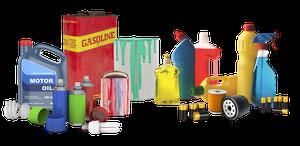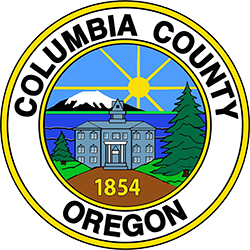Household Hazardous Waste
What is Household Hazardous Waste?
Keeping the environment clean and protecting fish and wildlife habitat as well as water quality are some of Columbia County’s goals.
Many items used around the home, including cleaning, gardening, and automotive products are considered hazardous and can’t be placed in garbage bins or disposed of through regular recycling. Toxins in these products can present potential safety and health hazards to people, pets, and water quality. The most common products include aerosols, anti-freeze, fertilizers, motor oil, paint supplies, photo chemicals, poisons, and solvents. Items that have labels that contain the words flammable, toxic, corrosive, reactive, warning, caution, dangerous, combustible, ignitable, and oxidizer can be toxic and should be disposed of properly.
Columbia County sponsors free household hazardous waste collection events throughout the year in St. Helens, Vernonia, Rainier, and Clatskanie. Check the schedule for events in 2024 and a list of items that can and cannot be accepted.
- household hazardous waste collection schedule→

Common hazardous household items
NOTE: not all of these items are accepted at certain HHW collection events. Please check the schedule.
- ammunition (small arms)
- antifreeze
- aerosols, air fresheners, and deodorizers
- art, craft, and hobby chemicals
- batteries - vehicle, rechargeable, button, alkaline batteries
- beauty products such as fingernail polish and remover, and some hair products
- cleaners (bleach, detergents, degreasers, disinfectants, drain cleaners, deck cleaners, hand cleaners, oven cleaners, polishes, waxes)
- colorants and tints
- compressed gas cylinders
- explosives, fireworks, and flares
- fire extinguishers
- flea control products
- fluorescent ballasts and lamps
- fluorescent tubes
- gasoline, kerosene, diesel fuels, lighter fluid
- glues, epoxies, adhesives, and caulking compounds
- lawn and garden chemicals (moss killers, fertilizers, herbicides, pesticides, poisons)
- light ballasts—please remove from the light fixture
- mercury (items containing mercury can include ballasts, barometers, blood pressure gauges, fluorescent lights, high-intensity discharge (HID) lamps, silent wall switches, thermometers-medical and household, thermostats)
- motor oil, lubricating oils, windshield cleaners, brake fluid, transmission fluid, antifreeze
- pool and spa chemicals
- propane tanks and bottles
- paint and paint products (latex and acrylic paint, spray paint, marine paint, automotive paint, oil-based paint, enamel, stains, lacquers, shellacs, varnishes, primers, wood preservatives, paint additives)
- poisons
- roof patching and repair materials
- solvents, resins, thinners, mineral spirits
- tar, pitch, and bitumen-based products.
Non-acceptable items
- any material containing asbestos
- bio-medical waste
- dead animals
- radioactive materials
- garbage or trash
- liquids in containers larger than five gallons will not be accepted
- unwanted/unused medicine and pharmaceuticals.
How to reduce your use of hazardous waste
- find less-toxic ways to clean, maintain, repair, and improve your home, control pests, and care for your pets
- choose less toxic products in your home and garden
- select or make your own safer alternative products when you can
- buy only what you need and will use in a reasonable amount of time
- share leftovers with those who need them.

